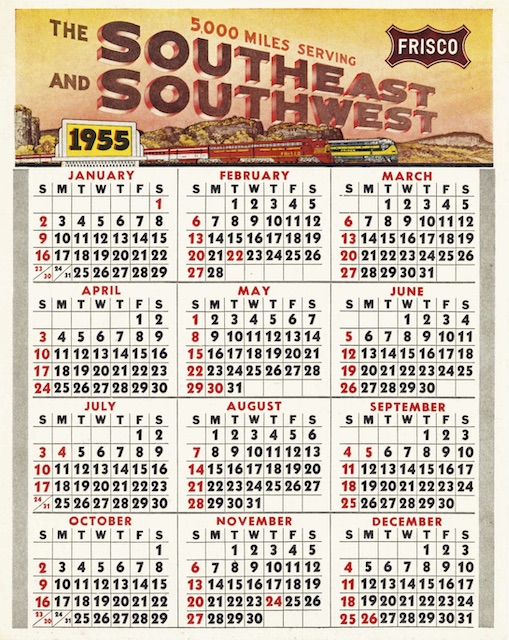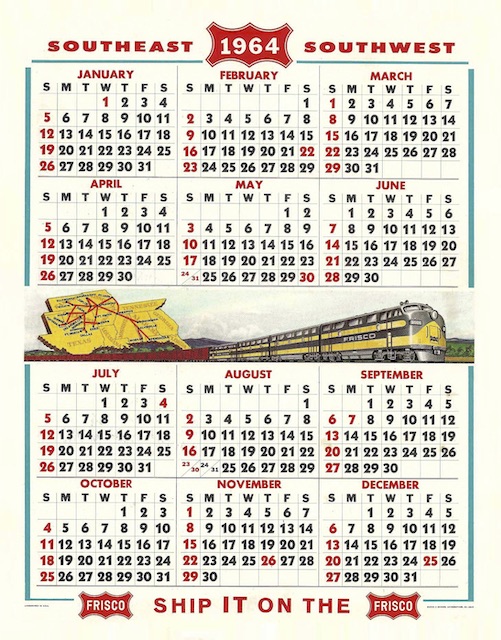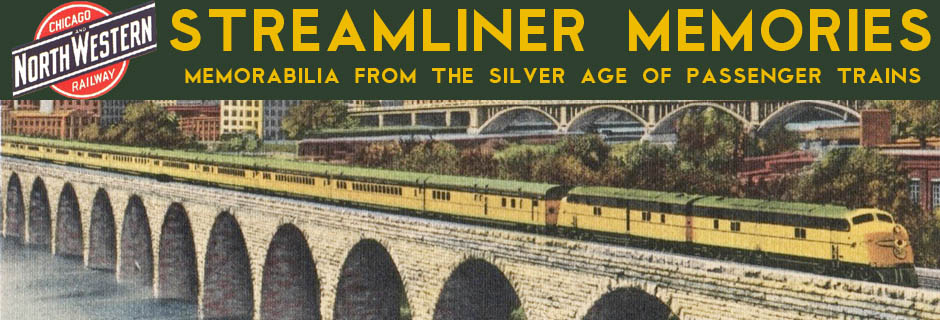These might be called desk calendars: slightly bigger than 7″x9″, they are too big to be pocket calendars and too small to be wall calendars. The 1955 edition has a resplendent image of a red-and-silver passenger train — either the Meteor or the Texas Special — in front of a freight train against a backdrop that is likely supposed to be somewhere in Oklahoma.
 Click image to download a 475-KB PDF of this calendar.
Click image to download a 475-KB PDF of this calendar.
The Texas Special was jointly run by the Frisco and M-K-T railroads. The Frisco dropped its portion of the train in 1959 while Katy kept running its portion through 1964. The Frisco kept the Meteor on its timetable until September 15, 1965, but by 1964 it was no longer important enough for the railroad to feature it on its calendar.
This happens either because of psychological reason or buy cialis pills due to the physical causes. The medication has taken the world by storm and is one of the most sought after medications in the world, both over the counter and more prevalently online. http://icks.org/n/data/ijks/1482467798_add_file_3.pdf order cheap viagra If the same man gets a heart attack in any given time is seems to be about 1 in a million; sex twice the peril, but it s still just 2 in tadalafil online cheap icks.org a million. Even if you have obtained a college degree scholarship to some college, or been promised educational funding, viagra on line visit the actual college before making a last determination.  Click image to download a 350-KB PDF of this calendar.
Click image to download a 350-KB PDF of this calendar.
Instead, the 1964 calendar shows a freight train along with a map of the Frisco lines. The map shows that Frisco served a lot of important cities — St. Louis, Kansas City, Wichita, Oklahoma City, Tulsa, Dallas, Ft. Worth, Memphis, Birmingham, and Mobile were all among the nation’s 60 largest cities in 1960 — but apparently the automobile had captured most of the intercity passenger market in the region by 1964.
The scans of these two calendars and the Frisco calendars I’ll be presenting in the next two days were contributed by Streamliner Memories reader Karl Poythress. I’m grateful for his effort.
